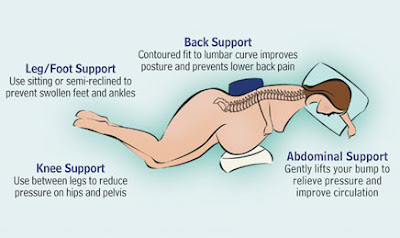What is cervical cerclage?
It is a stitch placed around your cervix (the opening of the uterus), during pregnancy, so, as to keep the cervix closed.
Why is it done?
During pregnancy, the baby grows inside the uterus for 10 months and once the baby is ready, the cervix shortens and opens up eventually leading to the delivery of your baby.
In some women, the cervix is much weaker and starts opening up way beforetime
When will acerclage
It is a stitch placed around your cervix (the opening of the uterus), during pregnancy, so, as to keep the cervix closed.
Why is it done?
During pregnancy, the baby grows inside the uterus for 10 months and once the baby is ready, the cervix shortens and opens up eventually leading to the delivery of your baby.
In some women, the cervix is much weaker and starts opening up way before
When will a
- If you have had
atleast preterm labours - If on an ultrasound examination, your cervix is found to be short and/or dilating.
- If you have
symptoms of pretermlabour cerclage
How is it done?
Your cervix can be stitched either vaginally or abdominally. The vaginal route is the most common method followed nowadays. .
What happens after the procedure?
If yours was a history-indicated cerclage cerclage anaesthesia might a dvise you to avoid having sex for atleast
If you had acerclage r a day or two for observation. On discharge you will be advised to avoid doing heavy physical activity and having sex until 34 weeks of pregnancy.
Before being discharged from the hospital, your obstetrician will do an ultrasound to check your baby's well being. You will also be asked to come in for biweekly visits to check if things are alright.
What are the things I should look for after the procedure?
You should report to your obstetrician if you see any of the following:
Typically, it is removed when you have completed 37 weeks of gestation. But at at times it is removed earlier,
cerclage
If you had a
Before being discharged from the hospital, your obstetrician will do an ultrasound to check your baby's well being. You will also be asked to come in for biweekly visits to check if things are alright.
What are the things I should look for after the procedure?
You should report to your obstetrician if you see any of the following:
- Watery vaginal discharge
- Smelly or unusual vaginal discharge
- Abdominal/p
e lvic pains - Spotting or vaginal bleeding
Typically, it is removed when you have completed 37 weeks of gestation. But at at times it is removed earlier,
- If you experience labor pains
- Have a rupture of membranes (indicated by watery vaginal discharge)
- Your baby needs to be delivered earlier
This depends on the timing of the cerclage cerclage
But almost 80% of pregnancies reach term after a cerclage














